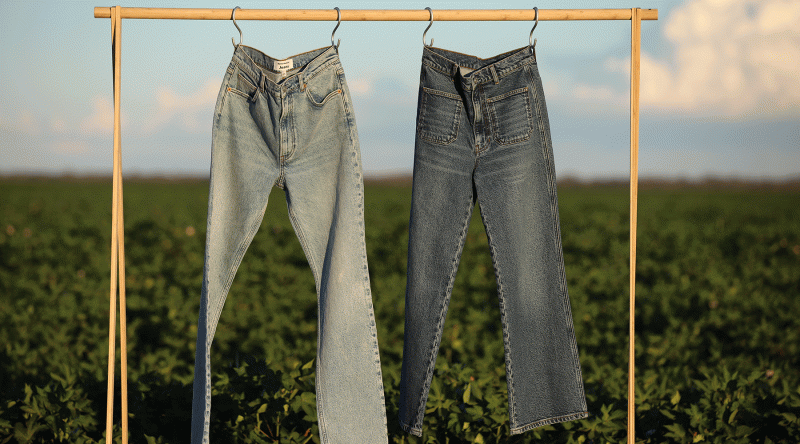Viewpoint: Investing in regenerative agriculture is the latest self-congratulatory easy-fix trend in fashion. Here’s why it can’t solve all our problems
Viewpoint: Investing in regenerative agriculture is the latest self-congratulatory easy-fix trend in fashion. Here’s why it can’t solve all our problems


Investing in regenerative agriculture is the latest trend in fashion. This year, the Kering Luxury Group — home to brands such as Gucci, Bottega Veneta, Balenciaga and Alexander McQueen — has co-founded a regenerative agriculture fund. It aims to transform 247 million acres of land into sustainable fields that produce wool, leather, cotton and cashmere by 2025.
…
I’d like to view this as an exciting opportunity for agriculture. In the U.S. alone, the average consumer buys 68 garments per year, five times more than in 1980. Sourcing the raw materials for this ever-growing industry from regenerative farms would encompass a large-scale transformation. But just because a shirt is made from regeneratively grown cotton doesn’t make it a sustainable product.
Conserving land is better than farming it regeneratively. Long-standing research into the question of land-sparing versus land-sharing concludes thatland-sparing produces superior outcomes for wild species. We should use as little land as possible for agriculture, dedicating “spared” areas completely to biodiversity rather than incorporating conservation practices into agriculture if they demand larger growing areas.
The more we consume, and the more land we use, the harder it will be to regenerate natural systems rich in biodiversity and sequestered carbon.
Read the original post

 | Videos | More... |

Video: Nuclear energy will destroy us? Global warming is an existential threat? Chemicals are massacring bees? Donate to the Green Industrial Complex!
 | Bees & Pollinators | More... |

GLP podcast: Science journalism is a mess. Here’s how to fix it

Mosquito massacre: Can we safely tackle malaria with a CRISPR gene drive?

Are we facing an ‘Insect Apocalypse’ caused by ‘intensive, industrial’ farming and agricultural chemicals? The media say yes; Science says ‘no’
 | Infographics | More... |

Infographic: Global regulatory and health research agencies on whether glyphosate causes cancer
 | GMO FAQs | More... |

Why is there controversy over GMO foods but not GMO drugs?

How are GMOs labeled around the world?

How does genetic engineering differ from conventional breeding?
 | GLP Profiles | More... |

Alex Jones: Right-wing conspiracy theorist stokes fear of GMOs, pesticides to sell ‘health supplements’




 Viewpoint — Fact checking MAHA mythmakers: How wellness influencers and RFK, Jr. undermine American science and health
Viewpoint — Fact checking MAHA mythmakers: How wellness influencers and RFK, Jr. undermine American science and health Viewpoint: Video — Big Solar is gobbling up productive agricultural land and hurting farmers yet providing little energy or sustainabilty gains
Viewpoint: Video — Big Solar is gobbling up productive agricultural land and hurting farmers yet providing little energy or sustainabilty gains Trust issues: What happens when therapists use ChatGPT?
Trust issues: What happens when therapists use ChatGPT? Fighting deforestation with CO2: Biotechnology breakthrough creates sustainable palm oil alternative for cosmetics
Fighting deforestation with CO2: Biotechnology breakthrough creates sustainable palm oil alternative for cosmetics California, Washington, Oregon forge immunization alliance to safeguard vaccine access against federal undermining
California, Washington, Oregon forge immunization alliance to safeguard vaccine access against federal undermining 30-year-old tomato line shows genetic resistance to devastating virus
30-year-old tomato line shows genetic resistance to devastating virus The free-range chicken dilemma: Better for birds, but with substantial costs
The free-range chicken dilemma: Better for birds, but with substantial costs ‘You have to treat the brain first’: Rethinking chronic pain with Sanjay Gupta
‘You have to treat the brain first’: Rethinking chronic pain with Sanjay Gupta
